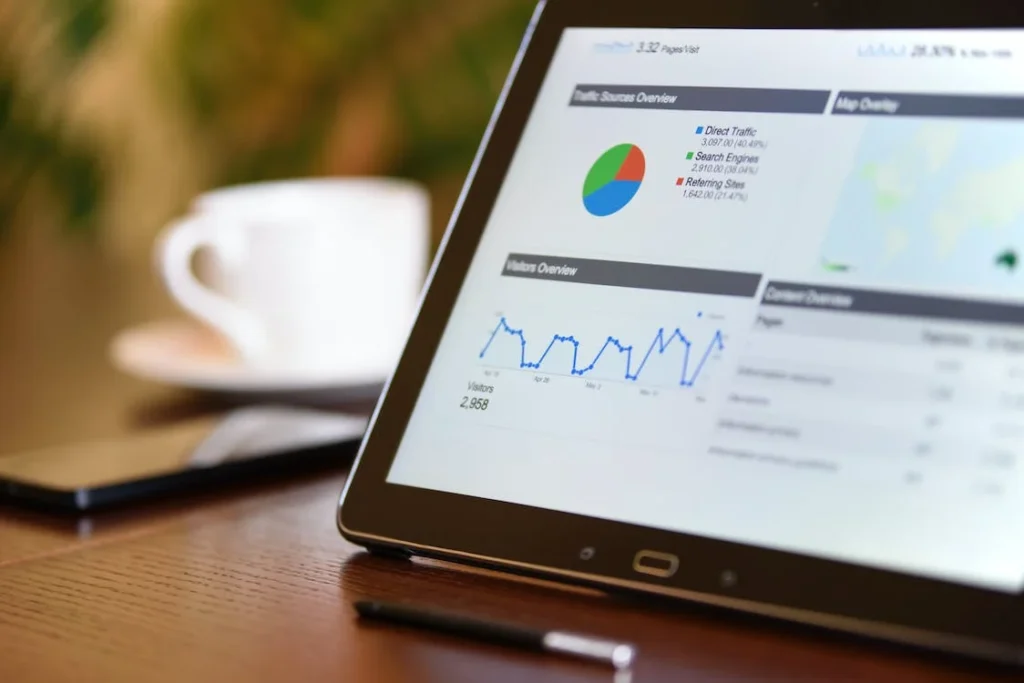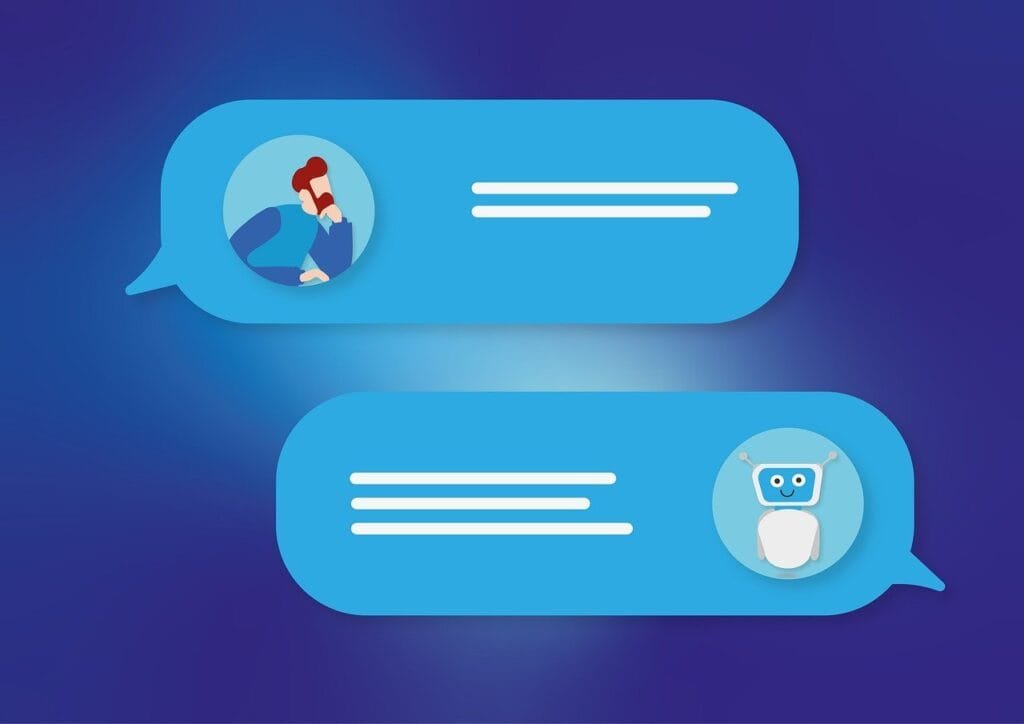In the dynamic landscape of digital marketing, businesses are ceaselessly vying for ways to outshine competitors and magnetize potential clients. Amidst the myriad of available strategies, AI-powered lead generation emerges as a groundbreaking approach, wielding the prowess of artificial intelligence to seamlessly capture, nurture, and convert leads. This article unearths the intricate layers, innovative techniques, and prospective impacts of AI in transforming conventional lead generation strategies, ensuring that businesses not only capture but also captivate their audience.
AI-Powered Lead Generation: Unraveling the Future
The dawn of artificial intelligence has unveiled a spectrum of opportunities, setting the stage for innovation and efficiency. In the realm of digital marketing, AI transcends the boundaries of human capacity, offering precision, personalization, and predictive analysis at an unprecedented scale. Gone are the days of generic, one-size-fits-all approaches. In this AI-driven era, each interaction is meticulously tailored, every lead uniquely nurtured, weaving a narrative of personalized engagement that transforms prospects into loyal clientele.
AI not only optimizes engagement but deciphers the enigmatic patterns of consumer behavior. By harnessing vast reservoirs of data and employing sophisticated algorithms, AI transforms raw data into actionable insights, offering a granular view of the prospective customer’s journey, preferences, and potential triggers for conversion.
Decoding AI Algorithms in Lead Generation
As the discussion propels deeper into the AI-powered ecosystems, it’s imperative to dissect the underpinning algorithms that dictate their operational efficiency. Machine learning, deep learning, and natural language processing emerge as the triumvirate forces, each playing an instrumental role in elevating the precision and personalization of lead generation strategies.
Machine learning algorithms are akin to the bedrock of AI-powered lead generation. They sift through voluminous data sets, identifying patterns and anomalies. The beauty lies in their evolutionary nature; these algorithms learn and adapt, refining their predictions and recommendations with every interaction. It translates into a dynamic strategy, where marketing efforts are not static but evolve in real-time, adapting to the ever-changing landscape of consumer preferences and market trends.
The Role of Predictive Analytics
Harnessing the prowess of machine learning, predictive analytics emerges as a pivotal aspect of AI-powered lead generation. It transcends the rudimentary metrics of demographic data, delving deeper into psychographic and behavioral analytics. Every click, every interaction, and every online footprint is meticulously analyzed to forecast potential leads’ behavior, interests, and propensity to convert.
In a world inundated with content, predictive analytics ensures that marketing efforts are not akin to shooting in the dark but are targeted, tailored, and timely. It enables businesses to engage potential leads with content and interactions that resonate with their unique preferences, significantly amplifying the probability of conversion.
AI and Personalization: A Match Made in Heaven
In the intricate dance of lead generation, personalization emerges as a pivotal partner. AI takes personalization to unprecedented heights. By leveraging real-time data, AI algorithms create hyper-personalized experiences that are not just reflective of potential leads’ current preferences but are also anticipatory in nature, forecasting future trends and behaviors.
Customized content, personalized recommendations, and tailored interactions; each element of the marketing funnel is intricately crafted to resonate with the individual nuances of every lead. It transforms the narrative from a generic engagement to a personalized dialogue, where leads are not just passive recipients but active participants in a curated journey.
A Deep Dive into AI-powered Lead Generation Strategies
In the ever-evolving landscape of digital marketing, lead generation stands as a pivotal process for businesses seeking growth and expansion. However, in an era where data is king and customer expectations are higher than ever, traditional lead generation approaches can fall short. This is where Artificial Intelligence (AI) steps in as a game-changer.
This comprehensive guide takes you on a journey into the world of AI-powered lead generation strategies. We will explore the fundamental concepts, delve into the intricacies of leveraging AI effectively, and uncover the strategies that can transform leads into valuable assets for your business.
Understanding the Basics
Before we dive into the specifics of AI-powered lead generation, let’s establish a foundational understanding:
What is Lead Generation?
- Lead generation is the process of identifying and attracting potential customers, or leads, with the goal of converting them into paying customers. It’s the lifeblood of businesses looking to expand their customer base.
The Role of AI:
- Artificial Intelligence, or AI, refers to the use of computer systems to perform tasks that typically require human intelligence. In the context of lead generation, AI enhances and automates various aspects of the process.
The Power of Data:
- AI relies heavily on data. It processes and analyzes vast amounts of information to make predictions, personalize interactions, and identify high-potential leads.
Why AI Matters:
- AI-powered lead generation offers unparalleled advantages, including improved lead scoring accuracy, personalized marketing campaigns, and the ability to scale operations efficiently.
Simplified Language:
- Throughout this guide, we’ll avoid complex jargon and explain concepts in simple, straightforward terms. Our goal is to make AI-powered lead generation accessible to everyone.
The Power of Precision and Predictability
In the realm of lead generation, precision and predictability are the cornerstones of success. AI empowers businesses to predict lead behavior, score leads accurately, and allocate resources strategically. Here’s a closer look at how AI achieves these goals:
Predictive Lead Scoring
Traditional Lead Scoring:
In conventional lead scoring, businesses assign values to leads based on predetermined criteria such as job title, industry, or website activity. While this approach provides some level of lead qualification, it often falls short in capturing the complexity of lead behavior.
AI-Powered Precision:
AI takes lead scoring to the next level. Machine learning algorithms analyze historical data to identify patterns and correlations that humans might miss. This results in predictive lead scoring, where leads are evaluated based on their likelihood to convert. AI considers numerous factors, including:
- Behavioral Data: AI analyzes a lead’s online behavior, such as website visits, content engagement, and email interactions, to gauge their interest and intent.
- Demographics: AI incorporates demographic information, but it doesn’t stop at surface-level details. It can identify nuanced characteristics that impact conversion likelihood.
- Historical Performance: By examining how similar leads have performed in the past, AI can predict the future behavior of current leads.
- External Data: AI can also consider external data sources, such as social media activity and industry trends, to refine lead scoring.
The Impact: Predictive lead scoring leads to more accurate prioritization of leads. Sales and marketing teams can focus their efforts on leads with the highest conversion potential, increasing efficiency and revenue.
Customer Behavior Analysis
Understanding Lead Behavior:
AI-powered analytics delve deep into lead behavior. They can identify the pages leads visit, content they engage with, and the pathways they follow on your website. This level of insight goes beyond traditional web analytics.
Real-Time Insights:
AI doesn’t just provide historical data; it can offer real-time insights into lead behavior. This means you can react promptly to changes in lead intent or interest.
Personalization at Scale:
Armed with detailed behavioral data, businesses can personalize lead interactions on a granular level. AI can determine the most appropriate content, messaging, and timing for each lead.
Resource Allocation Optimization
Budget Allocation:
AI assists in optimizing budget allocation. It identifies the most effective marketing channels and campaigns, ensuring that resources are invested where they generate the highest returns.
Sales Focus:
By prioritizing leads with the highest conversion potential, AI helps sales teams work more efficiently. Sales representatives can concentrate on leads that are more likely to convert, increasing their success rates.
Adaptation and Learning:
AI continuously learns and adapts. As new data becomes available, AI algorithms adjust their predictions and recommendations, ensuring that lead generation efforts remain effective over time.

Related: Check out our free SEO suite

Personalization at Scale
Personalization has become a buzzword in marketing, and for a good reason—it works. AI empowers businesses to personalize lead interactions at scale, delivering the right message to the right person at the right time. Here’s how AI achieves personalization:
Content Personalization
Tailored Content Recommendations:
AI algorithms analyze lead behavior and preferences to recommend content that aligns with individual interests. Whether it’s blog articles, whitepapers, or product recommendations, AI ensures that leads receive content that resonates with them.
Dynamic Content:
AI enables the creation of dynamic content that adapts to the lead’s preferences. This can include personalized product listings, email subject lines, and website experiences.
Behavior-Triggered Emails:
AI can trigger automated emails based on lead behavior. For instance, if a lead abandons a shopping cart, AI can send a personalized email reminding them to complete their purchase.
Email Personalization
Hyper-Personalization:
AI can craft highly personalized email content by considering factors such as lead behavior, demographics, and past interactions. This goes beyond simply addressing the lead by their first name.
Behavior-Driven Recommendations:
AI-powered email marketing can include product recommendations based on the lead’s browsing and purchase history, increasing the likelihood of conversion.
Optimal Send Times:
AI analyzes lead behavior to determine the best times to send emails. This ensures that emails land in the inbox when leads are most likely to engage.
Website Personalization
Dynamic Website Experiences:
AI can customize website content in real-time based on the lead’s behavior. For example, an e-commerce site can display personalized product recommendations and offers.
Adaptive Landing Pages:
When leads click on ads or emails, AI can direct them to landing pages that are tailored to their interests and preferences, improving conversion rates.
Content Recommendations:
AI can suggest additional content to leads while they’re browsing your website. This keeps them engaged and encourages them to explore more of your offerings.
Conclusion: The Future of AI-Powered Lead Generation
As we conclude our deep dive into AI-powered lead generation strategies, it’s clear that AI has ushered in a new era of precision, personalization, and efficiency. It has transformed lead scoring, behavior analysis, and resource allocation, making lead generation more effective than ever before.
Moreover, AI’s ability to personalize interactions at scale ensures that leads receive content and messages that resonate with their individual preferences. This level of personalization not only boosts engagement but also enhances the overall customer experience.
READ NEXT:





















